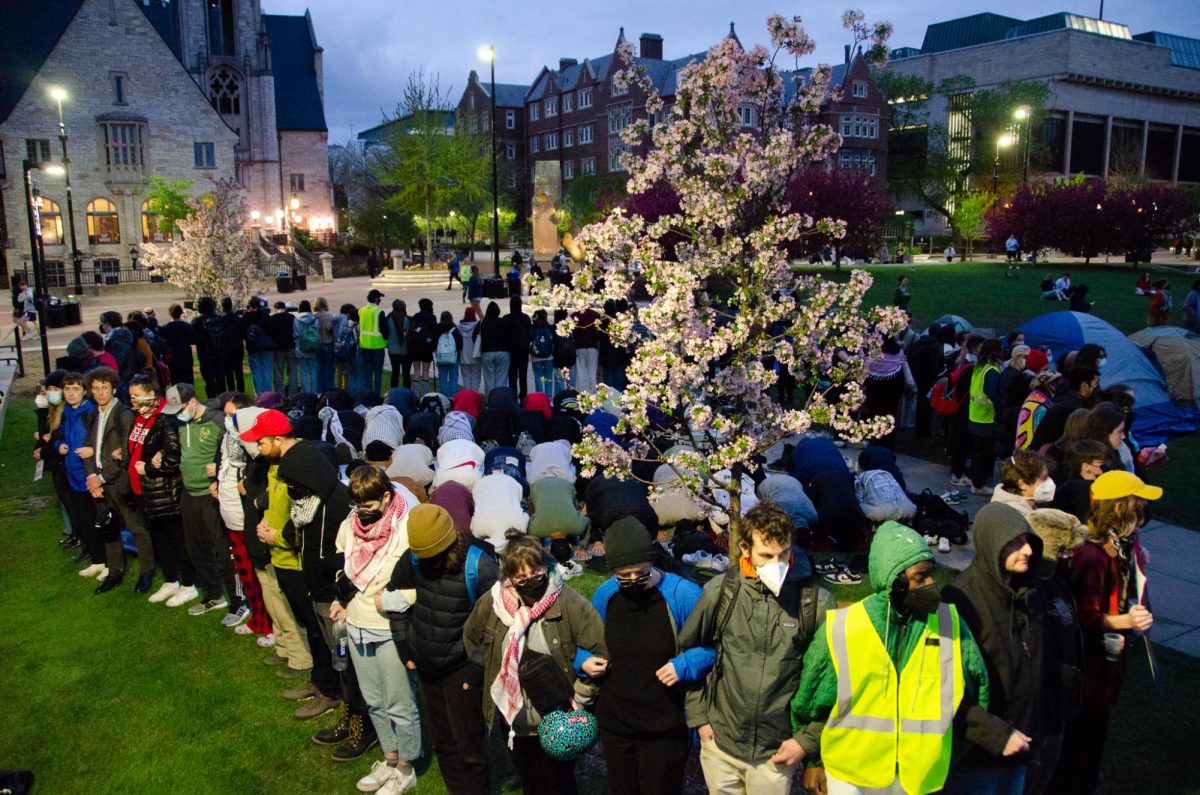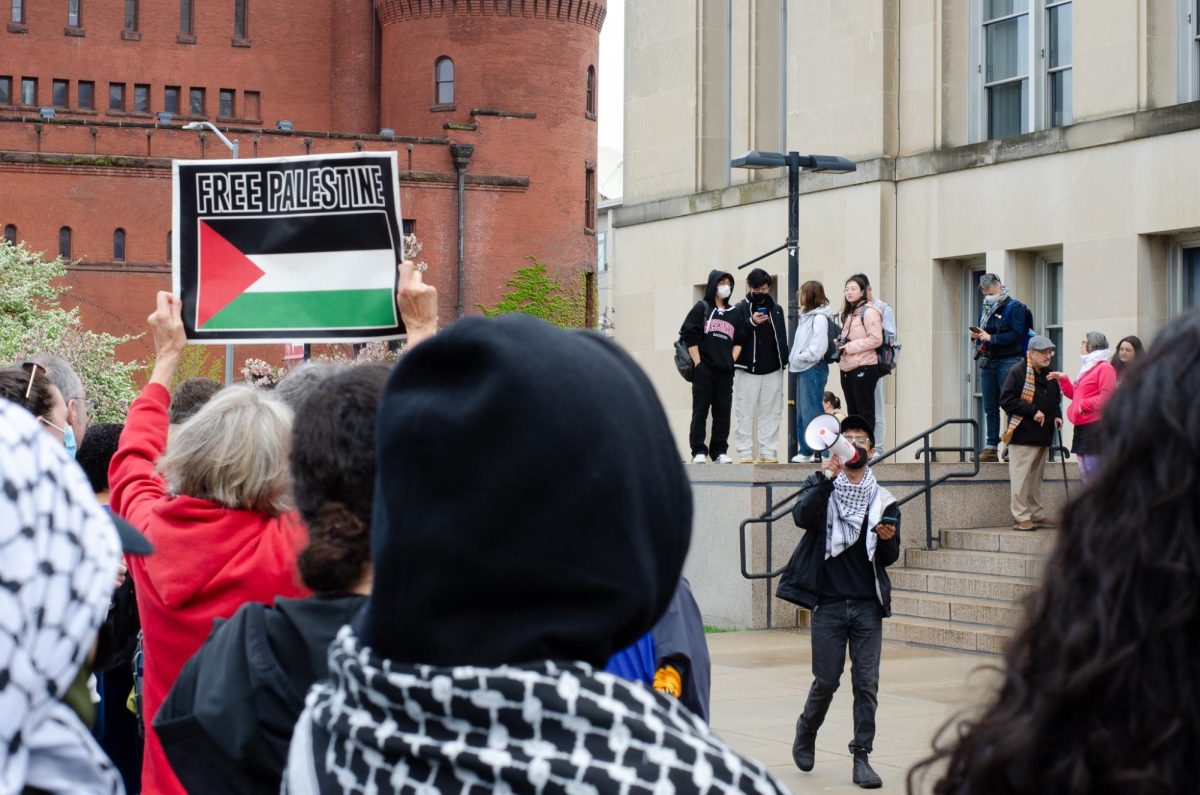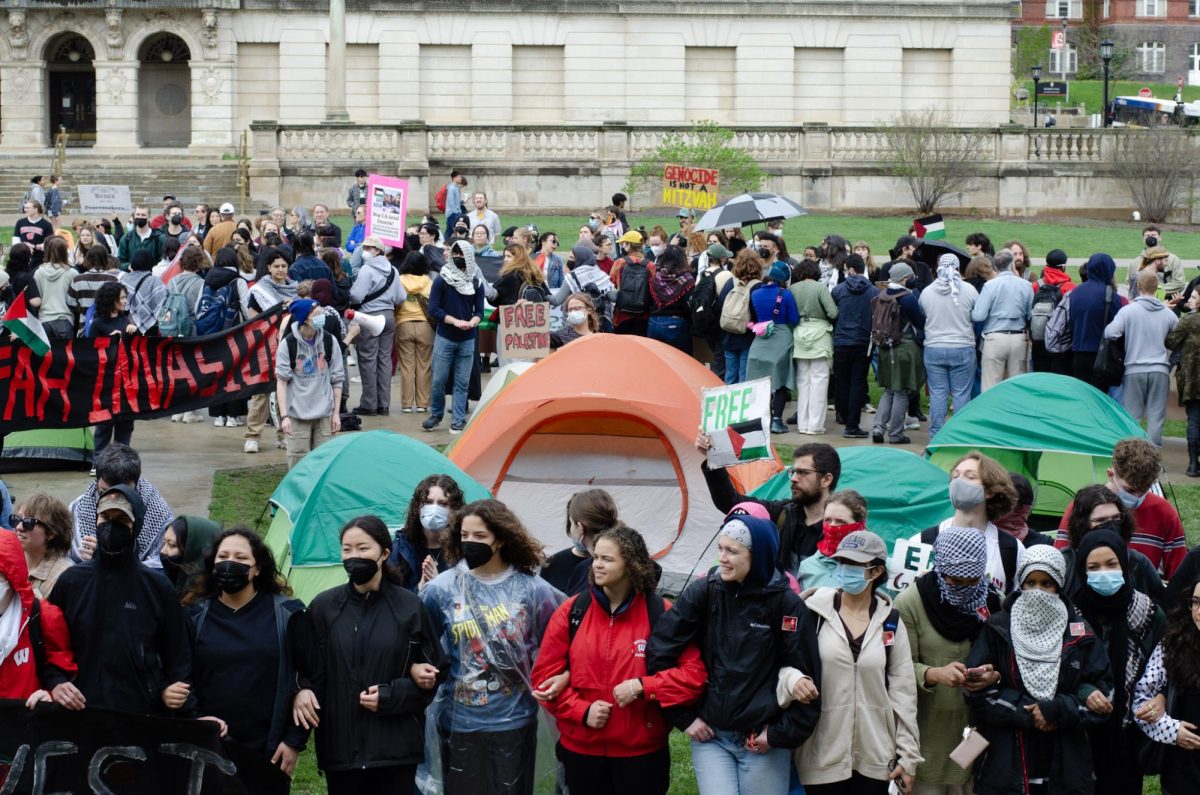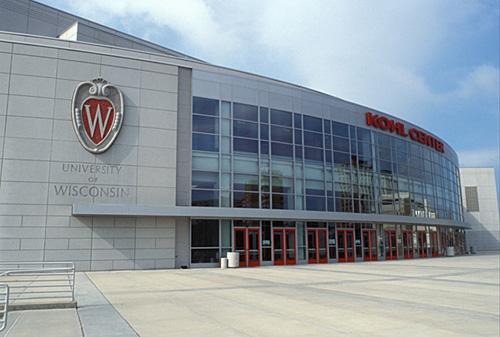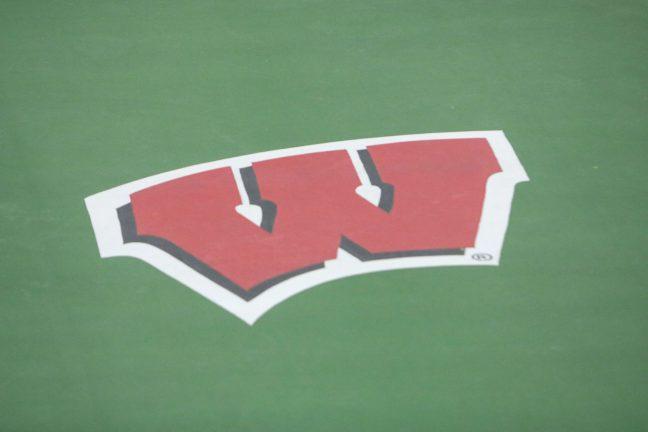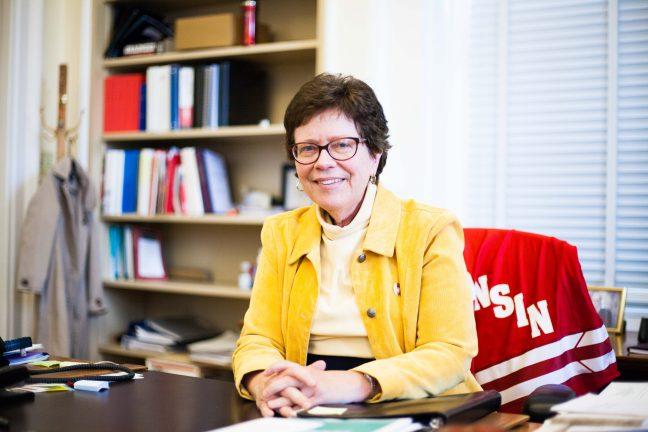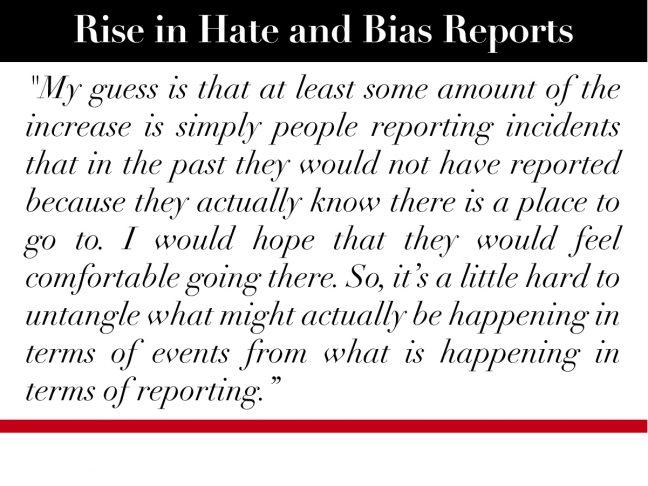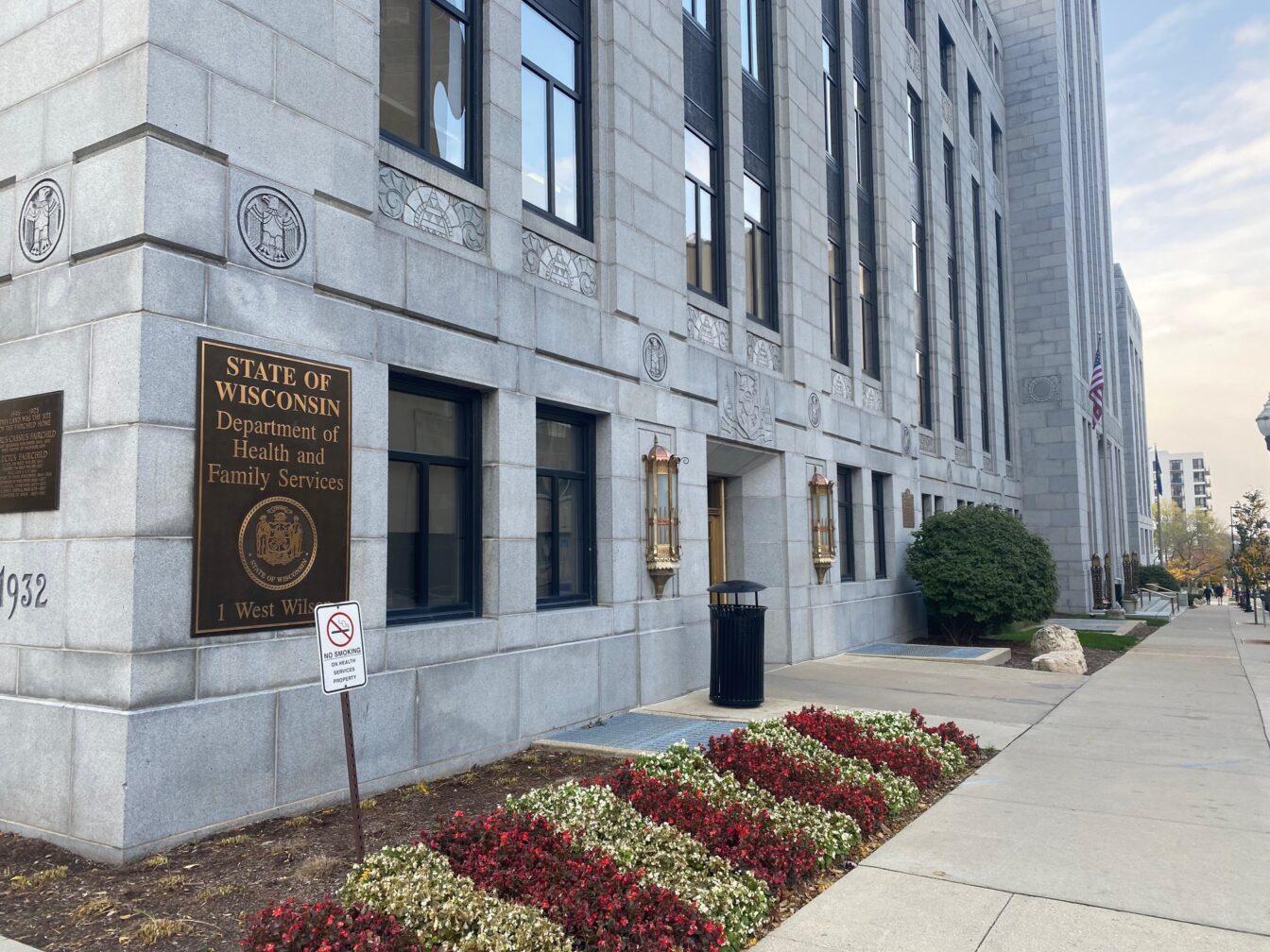For University of Wisconsin Chancellor Rebecca Blank, it’s been a quieter fall than expected.
It’s been a year since the election of President Donald Trump, and UW — like other college campuses and cities — continues to wrestle with how to solve the racial, political and social tensions that have heightened in the past year. UW students are working to spark conversations about these issues that permeate their lives, but continue to face challenges when it comes to listening to the other side.
Blank sat down with The Badger Herald to discuss some of the most pertinent challenges facing UW, ranging from the current campus climate and free speech, to Foxconn coming to town, to faculty retention.
Campus climate survey reveals ‘unsurprising’ reality at UW
Earlier this month, the campus climate survey revealed underrepresented communities, such as racial minorities and LGBTQ+ students, share less positive experiences and feel less safe on campus.
The results of the survey, which Blank called “unsurprising,” were on par with similar climate surveys from other universities, and have called into question the effectiveness of previous cultural competency measures. Some argue UW is not doing enough to cultivate an inclusive environment.
“I can’t say what the reasons are [for the results], but I can suggest what I suspect some of them are. We are a majority white campus and any place where there are not a lot of people that come from your background or experience … can sometimes be more alienating,” Blank said. “That’s something I know Native American students experience, something African American students experience. And I’ve heard such things from students who come from small, rural towns around the state coming to a more urban environment feeling that type of alienation as well.”
“This survey says an unacceptably large number of particularly students of color feel less welcome on campus”
Along with the feeling of alienation on campus, issues culminating at the national level — such as immigration reform, hate crimes, discriminatory rhetoric or disparities in the criminal justice system — can shape how students experience campus, especially for minority students. Heated national controversies seep into daily campus life.
According to the survey, only 65 percent of students of color, 69 percent of LGBQ students and 50 percent of transgender or nonbinary students feel welcome on campus.
“This survey says an unacceptably large number of particularly students of color feel less welcome on campus,” Blank said. “I would say the same thing about people with alternative sexual identities clearly came out in this survey as well and we need to be very aware of that and figure out what we can be doing to keep becoming a more inclusive and welcoming campus for all groups.”

The university has launched a number of initiatives surrounding campus climate over the last couple of years, including 18 in fall 2016. One of the most important initiatives and “first step” for incoming students, Blank said, has been the Our Wisconsin program, which expanded to include all freshmen last semester.
“There is no one magic bullet here, it’s simply working at this in multiple ways all the time …
According to a fall 2016 pilot program review, there was a significant difference between students who participated in the Our Wisconsin program and those who did not in terms of how they perceive and discuss race and diversity. For example, 82 percent of those who participated in the Our Wisconsin program said they were somewhat, very or extremely likely to question a friend about a biased or stereotypical comment, compared to 73 percent of those who did not complete the program.
The campus climate survey put forth a list of recommendations which, broadly, hope to promote the development of more programs that will facilitate conversation surrounding diversity and inclusivity.
Specifically, the School of Education has put together a curriculum called “The Discussion Project,” which is aimed at working with faculty to address issues such as teaching in a more diverse classroom and helping understand how one makes sure their comments, examples or even exam questions are sensitive to a much wider and more diverse range of students.
“There is no one magic bullet here, it’s simply working at this in multiple ways all the time … We are always looking to say, ‘What are we not doing that potentially we should think about doing that would be helpful?’” Blank said. “… People come at things with very different perspectives, and what you partly want to provide is a set of opportunities, all of which engage people in different ways.”
To avoid “survey fatigue,” Blank said they plan on conducting the survey in four to five years. She added this will allow time for the initiatives to have a more measurable impact.
Blank says free speech policy is not ‘anti-protest’
As tensions surrounding issues of race and identity heat up on college campuses, so does the dilemma of how to engage in more difficult conversations. After a year of seemingly constant student-led and city-wide protests, the UW community struggles to define the boundaries of free speech.
When a group of protesters interrupted controversial conservative pundit Ben Shapiro at an event hosted by Young Americans for Freedom last year, the UW System Board of Regents began to reevaluate ways to ensure visiting speakers had the right to speak, no matter how unpopular the opinion.

The result ended in a policy that mandates UW System schools discipline students who disrupt speakers. In the resolution, a student who disrupts the free expression of others on two separate occasions will face suspension. That same student will face expulsion if he or she is found to have disrupted free expression a third time.
Since the passage of the resolution, many, like Blank, have taken issue with the vagueness of the language used.
But as the vague language allows for a more broad interpretation of the resolution, Blank said it also allows the disciplinary process to be more “flexible” for students found to be disruptive.
Blank, who considers herself a “strong proponent of free speech” and participated in protests in the past such as anti-nuclear protests in the 1980s, has been publicly critical of the part of the policy that mandates disciplinary sentences. She emphasized the policy is not “anti-protest,” as students are still allowed to lawfully protest so long as they don’t actively disrupt the speaker to the point where they cannot be clearly heard.
“What is allowed on Bascom Hill is not allowed in your dorm room”
“If there is someone speaking down at the Union and there’s a major protest in Bascom Hall, by definition … that will not be subject to [disciplinary action] because there’s no way that that could disrupt the speaker,” Blank said. “If there were people who went [to the event] and stood inside with a sign and said nothing, that would not disrupt the speaker. It would have to be something that it would keep someone who wanted to listen from actually listening and understanding what the speaker was saying.”
There are different types of protest, Blank said, and the mandatory sentencing policy does not apply to all of them. The chancellor emphasized that disciplinary action will only be taken when an event is disrupted to the point where audience members are prevented from hearing the speaker.
Critics of the resolution have also expressed concern that the policy will silence minority voices on campus, and allow those with controversial opinions to spread hate.
While there have been speakers who have said things counter to the values the university would like to express, Blank said as a public university, they are limited in preventing certain speakers from expressing their opinions. The university cannot prevent certain speakers from coming to campus, however deplorable their views. But Blank said she can still condemn hateful rhetoric and make sure students have protected spaces.
“What is allowed on Bascom Hill is not allowed in your dorm room. You have a right to protect your living room from someone coming in and spewing hate at you,” Blank said. “So, we tend to have much tighter restrictions on what can happen inside dormitories, for instance, than we do on what happens on Bascom Hill.”
Foxconn provides prospects for partnerships, employment
With Foxconn set to open a $3 billion facility in Mount Pleasant by 2020, Blank said the university already has its eyes on taking advantage of potential partnerships with the Taiwanese technology giant.
“I think the biggest opportunity here is going to be for student placement and internships, and ways to provide the trained workforce that Foxconn wants,” Blank said. “ … We have particularly unique advantages given the quality and presence of our business school, our engineering school and our computer science department.”
The university has already been in conversations about how to do various career fairs with Foxconn and how they can be integrated into the career events that are already happening on campus, Blank said.
Murky waters: Foxconn deal brings economic opportunity, environmental concerns
Over time, the chancellor said she hopes to establish some sort of research connections as well some joint research work between Foxconn and UW faculty.
“Foxconn has a lot of interesting imaging equipment, and we happen to have a group in our school of Medicine and Public Health that is one of the top groups in the world on radiology imaging,” Blank said.
UW hopes for continued stability in retention
Despite years of budget cuts and controversial changes to tenure, Blank said she is hopeful UW will be able to grow faculty in the future.
In the midst of tumultuous relationships with the state Legislature and the Board of Regents in 2015, UW saw a 44 percent increase in outside offers from other institutions. Even though UW retained 80 percent of faculty in the 2015-16 school year, Blank said 80 percent of a much bigger number still means UW lost more people than it wanted to.
Still, the recent $140 million reinvestment in the UW System in Gov. Scott Walker’s 2017-19 biennial budget provides UW with opportunity for growth, Blank said.
UW professors, officials look forward after 2015 spike in outside offers, retention efforts
Since this budget is the first one in many years with no cuts, Blank hopes to “go back to normal” and use the next two years as a window of opportunity for investment.
In addition to faculty retention, Blank hopes to see UW tackle issues on all fronts — even those that are uncomfortable for students to face.
“As you know, some of our fellow schools have had a variety of very difficult incidents — and we’re always half a day away from something like that happening here — but I’m actually pleased to believe that more of our students are understanding that we are in a moment of a lot of conversations around diversity and cultural differences, and ethnic and racial issues and religious issues,” Blank said. “And those are conversations we need to engage in, but we need to engage in them in a way that actually invites people in rather than pushes them away. By and large, I’ve been pleased with how our students have dealt with these issues on campus. … It’s a difficult time for some of our students and I understand that.”



